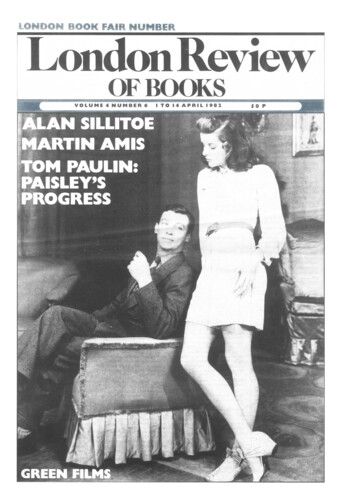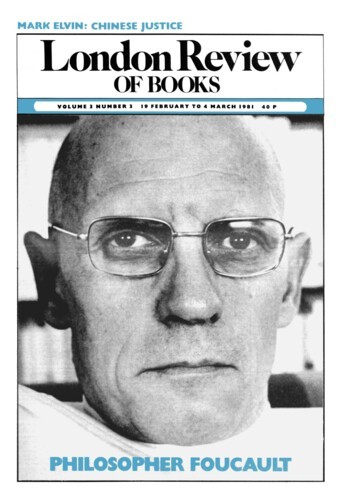Stop the war
Penelope Lively, 1 April 1982
The title of Shiela Grant Duff’s book refers to the history of the Thirties – to the savaging of private lives by public events – but more specifically to her intense, emotional and eventually embittered relationship with Adam von Trott. She and von Trott met at Oxford, in the brief deceptive sunshine before the rise of the Nazis; von Trott was to die in 1944, shot for his part in the plot against Hitler. They were part of a circle of young people – Goronwy Rees, Douglas Jay, Isaiah Berlin and others – deeply involved in observation and anguished discussion of what was happening in Europe. Shiela Grant Duff became a journalist – foreign correspondent, virtually unpaid, of the Observer, whose arrangements seem to have been engagingly casual (‘I think we’ve got a correspondent in Prague…Oh no! I think he died, but if you should happen to meet him, just say you’re a correspondent’); by 1938, still only 25, she was being consulted by Churchill as one of the few people adequately informed on Czechoslovakia and was the friend of Nehru, Edgar Mowrer of the Chicago Daily News, Herbert Ripka, the Czech journalist. Connections helped, of course: her background was remorselessly upper-class – her mother had 72 first cousins, one of whom was Clementine Churchill. Ambassadors recognised their own kind and provided time and invitations. Nevertheless, she must have been a remarkable girl: idealistic, high-minded and convinced – naively but admirably – that it was possible for one person to prevent war and save the world. This was the resolve that took her straight from Oxford to Paris, to learn to be a journalist, see at first-hand what was happening in Europe, and write about it. Quixotic as this sounds, one cannot feel other than respectful, especially as she was so clearly driven by commitment rather than ambition: indeed, she seems to a large degree to have been constitutionally unfitted for the job – in Malaga, behind the Franco lines, she had the chance to witness one of the executions she was sent to find out about, and declined, human response triumphing over journalistic instinct.


